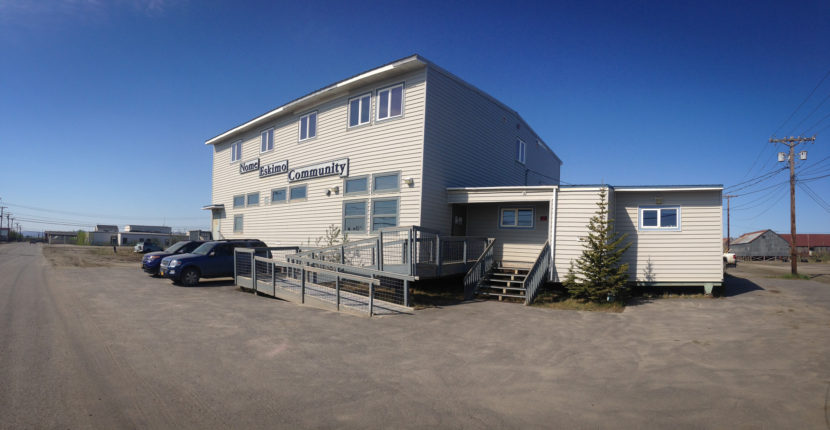
The term “Eskimo” is divisive across much of the Arctic, but it’s still being used in western Alaska. Some identify with it, while others want to see change.
President Barack Obama recently removed the words “Eskimo” and “Aleut” from two pieces of federal legislation, but it may take another generation for it to fade out of Alaska’s Arctic.
“It wasn’t until I went to graduate school in Montreal at McGill University for English as a second language when I got in trouble for using that word in one of my classes, ” confessed Yaayuk Alvanna-Stimpfle.
The word Alvanna-Stimpfle is referring to is “Eskimo.”
“We all identify with that word ‘Eskimo,’ as to who we are,” she explained, adding “my generation, we grew up speaking our native language as well.”
Alvanna-Stimpfle is a retired teacher from Nome Public Schools, where she taught her native language, Inupiaq, along with English as a second language. She’s now in her fifth year directing Kawerak’s Eskimo Heritage Program.
“It was a folklorist — an anthropologist — that thought of the title ‘Eskimo Heritage Program’ because it is about our history,” she said.
In some cases, the word Eskimo doesn’t bother Alvanna-Stimpfle. She grew up around it, but she said others are more resistant to it.
“Through education and awareness, our younger generations try not to use that word Eskimo or try not to identify with it because that was just a name that was given to categorize our people.”
Hattie Keller is 25 years old. Her family is from Shishmaref, but she was born and raised in Nome.
“Atiġa Iviilik. Kigiqtaamiuguzruŋa. My name is Hattie Keller,” Keller translates. “My Eskimo name is Iviilik and I am from Shishmaref.”
Keller describes ‘Iviilik’ as her Eskimo name, but she’s quick to clarify.
“I see myself as an Inupiaq, so when people do ask me what is my ethnicity, instead of saying Eskimo, I do say Inupiaq,” Keller explained.
She’s working towards an associate’s degree in tribal management and her bachelor’s in Alaska Native studies and rural development through UAF’s Northwest Campus.
Keller traveled to Fairbanks earlier this year for tribal management classes. She said even there she had to clarify her ethnicity to other Alaska Natives.
“I met with people and they were from a different culture, they were Athabascan, and I was the only quote-unquote Eskimo in the room,” Keller explained. “They asked me, ‘What do you prefer to be called, and what do your people prefer?’ And I told them it’s a personal preference.”
Keller said this happened after the Alaska Airlines “Meet our Eskimo” campaign, which, after public outcry, the company replaced with “Meet the Eskimo.”
Keller said she doesn’t get offended when people use the term Eskimo, unless it’s meant to be derogatory. She’s a member of Nome Eskimo Community, a federally recognized tribe from the Nome area.
Along with Nome Eskimo Community and the Eskimo Heritage Program, western Alaska is also home to the Eskimo Walrus Commission and the Alaska Eskimo Whaling Commission.
Arnold Brower is the executive director of the Alaska Eskimo Whaling Commission.
“I think ‘Eskimo’ covers it all for the broader range of representation for our subsistence way of life,” Brower said.
He considers himself Eskimo, and he said it’s a useful term for the commission.
“To be inclusive of Yup’ik whalers and Canadian whalers and Alaskan whalers, (the name) just came out naturally as Alaska Eskimo Whaling Commission,” explained Brower.
But Yaayuk Alvanna-Stimpfle doesn’t think the term will be around forever. She started brainstorming a few years back about how to remove the word from the Eskimo Heritage Program. It hasn’t changed yet, but she thinks her program and others like it will give in to generational shifts.
“Whether it’s economics, culture or language, yeah, I think it will fade away,” Alvanna-Stimpfle said.
With the terms Eskimo and Aleut removed from two pieces of federal legislation, it’s already fading from the Washington bureaucracy.
